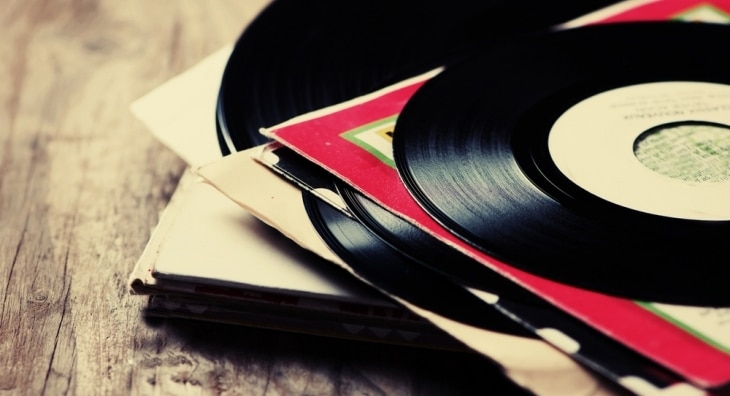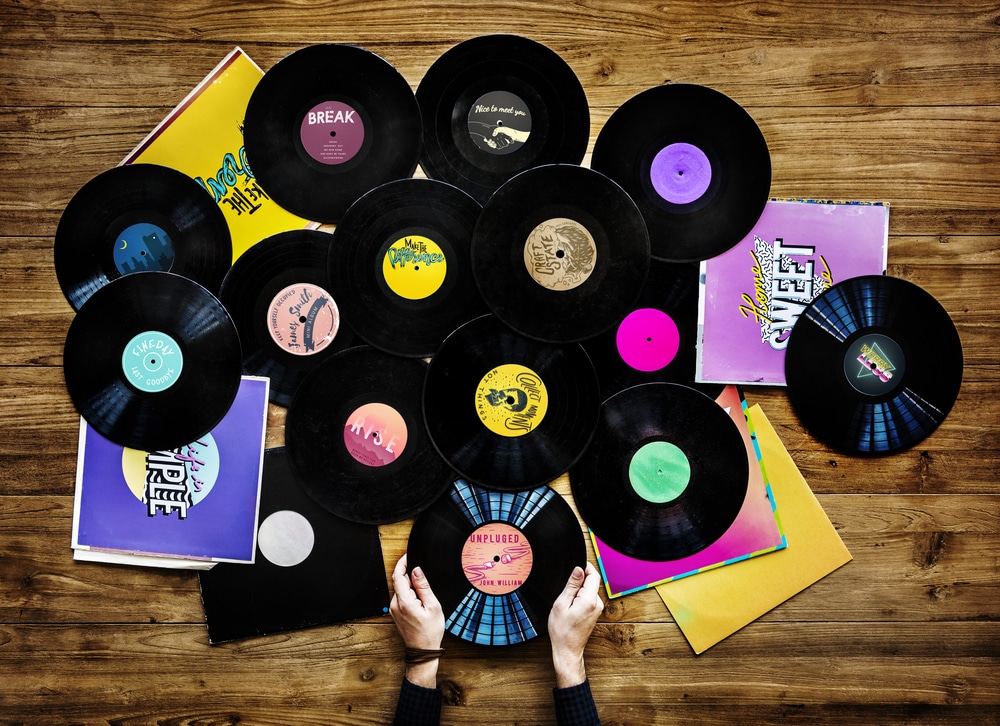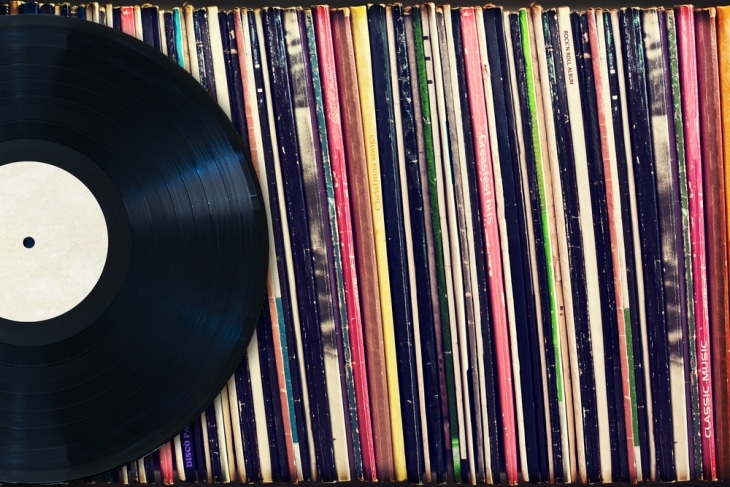Jasmine Birtles
Your money-making expert. Financial journalist, TV and radio personality.


Have you ever considered that you can sell vinyl records or even a full vinyl collection? Do you happen to to be a music lover and own an old vinyl collection? Did you inherit them or are they simply no longer of use? You may not own a record player anymore or have moved your entire collection to digital. Make your vinyl collection work for you – it’s time to think about selling it to a music lover!
Selling vinyl records can be rather lucrative if you know how to go about it. You also don’t need to have a large collection to make a pretty penny.

Vinyl sales saw a record 20-year high last year, with sales in 2024 coming to £2.4 BILLION – and it shows no sign of slowing down. As people both yearn for nostalgia and also want to own physical media in a digital age, the demand for both new and vintage vinyl LPs is on the rise.
If you think you have some lying around then it may be time to go rummaging in the attic. Investigate those dark corners and see what musical treasures you may have hidden away. You can also spend some time checking your local charity shops for some thrifty vinyl finds to add to your vinyl collection for sale.
Before selling vinyl records, we’d recommend checking the condition of your old vinyls. A detailed description is absolutely essential.
Most record collectors use something called Goldmine Standard. It’s worth familiarising yourself with this if you’re considering selling your old records.
Here’s how the system is classified:
Think ‘mint condition’. This record is perfect in every way, in an unblemished, sealed sleeve and has never been played. Many collectors will only grade up to Near Mint in order to keep Mint condition as the unrealised ideal. These are rare, but by far the most valuable.
This is close to perfect but not quite. A record’s sound quality is still perfect, but it has been opened and played a few times. The vinyl is glossy, unmarked and the sleeve looks flawless. These sell for a pretty penny.
The sleeve and vinyl are lightly marked and it suffers from occasional faint audio blips, but otherwise there isn’t really anything wrong with it.
There are a couple of minor problems like background pops and clicks or small visible scratches that indicate it’s had a few birthdays, but it is still enjoyable to listen to and look at. This is the most common form of record, but still worth selling. You might find some of the original inserts are missing or damaged.
In a bit of a misnomer, Good means barely acceptable. It looks scruffy, may be missing its sleeve and the sound issues will be very noticeable. If you’re thinking of selling vinyl records, then these may not be worth it, unless they are especially rare or celebrated.
The only records to be sold in this condition are the rare or vintage, where the privilege of owning them matters more than the quality of the piece. The record is badly warped, scratched or cracked, creating a listening experience that borders on painful. This might be acceptable for things like limited editions or first presses.
When preparing to grade and records in your collection, first give them a good clean to remove any dust or imperfections. A gradual build up of detritus causes the record to skip and click. Wiping it carefully will help with grading and get it in good condition ready to sell.
A proper vinyl record cleaner would be your best bet, but these can be expensive. Have a look at these 8 easy and affordable ways to clean your records here. How much you’re willing to spend on the cleaning process really depends on the records, their condition and how much you’re likely to make from them.
Once your record is clean, have a look at it under a strong bright light (ideally direct sunlight) with a magnifying glass, and then if possible, try it out (although we appreciate not everyone owns a record player). Remember to be wary of grading as high as Near Mint unless it really deserves it. Collectors know what you should be grading something better than you will, at least at first – so it’s important to do your research on each record to make sure you’re not accidentally giving someone an amazing bargain!
Now that you have an idea of what grade your record is, it’s time to work out exactly what it is that you have in front of you. Again, detailed descriptions are key.
There should be a label or a serial number somewhere on the record or its sleeve, and if you check this against a catalogue or online, you can work out useful details like which edition you have in front of you. It could be a very special record and worth a lot of money.
Different editions of the same album can have huge variations in selling price, so it is very important to know which one you have. The album itself my be common, but the edition less so.
If you’re new to selling vinyl records, then it’s always worth seeing how much other people sold them for. You can usually find this online by checking eBay or Amazon.
If you can find what more experienced sellers got for records identical to yours (in terms of edition and quality), then this will give you a good idea of what to set your asking price as. Try searching the historic selling data of sites like Discogs or Popsike.
NEVER MISS A NEW MONEY-MAKING IDEA: SIGN UP TO OUR WEEKLY NEWSLETTER HERE

It’s likely that many of your records are not be particularly rare or exciting and some are not even in good condition. But you never know what you may have, many a seller has had valuable treasure tucked away somewhere they didn’t know about. It’s entirely possible. Especially if your collection is large.
Just in case you fancy more money and they happen to turn up in your attic, here are some of the most popular vinyl records to make money from (if you’re lucky enough to find them):
If just getting rid of your vinyl collection that take up too much space is your priority, you could sell them at non-specialist second hand stores or at a car boot sale. This is also good if your records aren’t particularly rare or valuable. You might be able to get a decent lump sum for a vinyl collection, but otherwise you’ll probably end up selling them for a decent profit.
However, make sure you do your research on each title in your possession first, and make yourself a clear catalogue that lists the title, serial number, and condition. You might have some hidden gems, which require a specialist vinyl reseller or collector to take on – a Google search will show one relevant to your location and your type of collection (such as whether it is mostly rock or classical or something in-between). A spreadsheet with the vital information on it can help any serious buyer to tell if you have something of great value – and it’ll also help you work out the rough price for each item so you know you’re not getting fobbed off with a lowball price.
If you’re just selling your collection as a one-time thing, you don’t have to register for tax. But if you want to turn this into a side hustle, buying vinyl from thrift shops and eBay to sell on for a higher price, that is counted as a business and you must register with HMRC.
And don’t forget about tax. You probably won’t have to pay VAT as you’re allowed a £85,000 turnover before you have to pay it. However, if your taxable turnover is over £85,000 (which, admittedly, would be a lot of vinyl sales!) then you’ll have to contact HMRC to register for VAT.
NEVER MISS A NEW DEAL: SIGN UP TO OUR WEEKLY NEWSLETTER HERE

I have around 500 late 60s through to 90s vinyl which I’ve listed out and put on discogs and been cleaned. But it’s sad that I’ve put them all onto cds and hard drives and the originals some rare are sitting there ready for a good buyer.
Hi
Are you interested in classical LPs? They’re all in good condition but do have stickers on the sleeves. There are about 70 I think.
Thanks
Louise
Mam kolekcję na sprzedaż
Have 76 Lp’s for sale by numerous artists ranging from GlennMiller to SHA NA NA,
33. LP’S FROM 1950,/1960/THE LETTERMAN, JOHNNY MATHIS, FRANK SINATRA, DEAN MARTIN, ETC., ETC. for sale.
I have a copy of the 12inches version of “ RHYTHM OF THE NIGHT BY CORONA “ very good condition
I have a record by Johnny cash called Christmas there will be peace in the valley how much is it worth
I have a collection of LPs from my parents house which I am clearing. Various genres e.g. Jazz, classical,
70s 80s pop and musicals. Would these be something you would be interested in?
Michael Jackson / Thriller / for sale / perfect condition